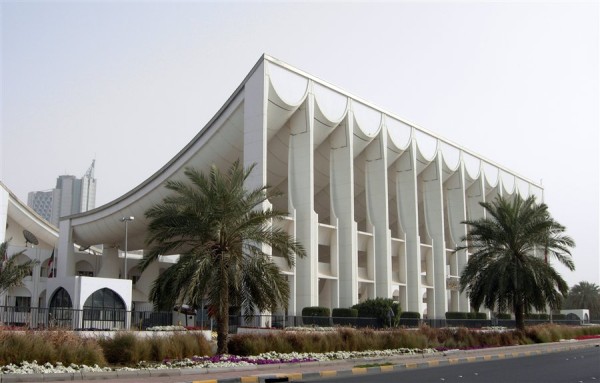Earlier this month, Kuwait’s parliament passed two new laws increasing the government’s power to censor online media and restrict free expression. On 11 January 2016, lawmakers prescribed a jail term of up to ten years for any online “criticism of the government, religious figureheads or foreign leaders.” The next day, the parliament passed an additional law regulating “professional” media, which it defines as “all forms of internet-based news services, bulletins, publications, newspapers and television stations’ websites.” The new legislation requires all web-based publications to possess a government license, without which publishers could face jail time. Although blogs are not subject to regulation as “professional” media, the new laws together criminalize broad acts of online free expression regardless of medium, thus effectively extending the government’s control to non-professional media as well.
This new legislation represents the most recent installment in a wider policy framework aimed at limiting Internet and press freedoms in Kuwait. Throughout 2014, the government applied a variety of laws in order to block Internet content and prosecute online critics. In May of that year, it enacted a new telecommunications law, for example, that allows the authorities to revoke the licenses of Internet service providers at will. The law also established the Commission for Mass Communications and Information Technology, which is tasked with supervising the country’s digital media and communications. According to Human Rights Watch and Freedom House, the Commission has the power to censor any outlet that presents “immoral messages” or “harms public order.” Anyone who “contributes” to the production of such content is subject to fines and even prison terms. The law does not allow for judicial review.
Although Kuwait acceded to the International Covenant on Civil and Political Rights (ICCPR), the government has used such legislation to justify a variety of actions that violate its international obligations, such as prosecuting activists and politicians who express dissenting views. In January 2015, the authorities arrested several online activists after they allegedly posted “offensive” tweets about the former king of Saudi Arabia, Abdullah bin Abdulaziz Al Saud. Among those arrested was Mohammad al-Ajmi,* a member of the National Committee for Monitoring Violations, an independent human rights group in Kuwait. According to other members of the organization, secret police apprehended al-Ajmi at his home without providing a reason. That same month, authorities detained former MP Saleh al-Mulla for five days on cybercrime charges; he is set to stand trial on 15 February due to tweets that the government considered offensive to Egyptian President Abdul Fattah el-Sisi. Similarly, the government is currently prosecuting Abdulhameed Dashti, a Shia MP, for allegedly criticizing politicians in Bahrain.
Viewed by some as “the Gulf country most tolerant of free speech,” Kuwait has imposed increasingly restrictive regulations on Internet and press freedoms since the Arab Spring protests of 2011. Just days before Egyptian protestors forced then President Hosni Mubarak to step down, for example, Kuwaiti security services started to interrogate and arrest Twitter users. In a particularly controversial case, a court sentenced Shia citizen Hamad al-Naqi to ten years in jail for insulting Islam and the Gulf States.
With the fifth anniversary of the Arab Spring fast approaching, the government’s recent decision to bolster its online censorship powers indicates another step in the wrong direction.
Margaret Bailey is an Advocacy Intern at ADHRB.
* Not to be confused with Mohammed al-Ajami, a poet currently detained in Qatar.





